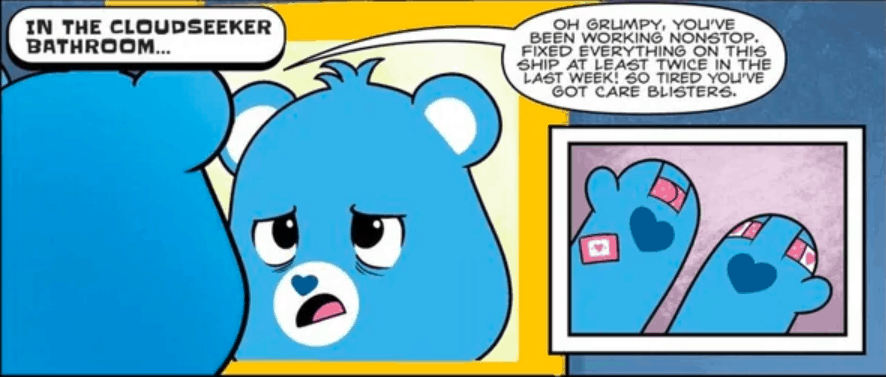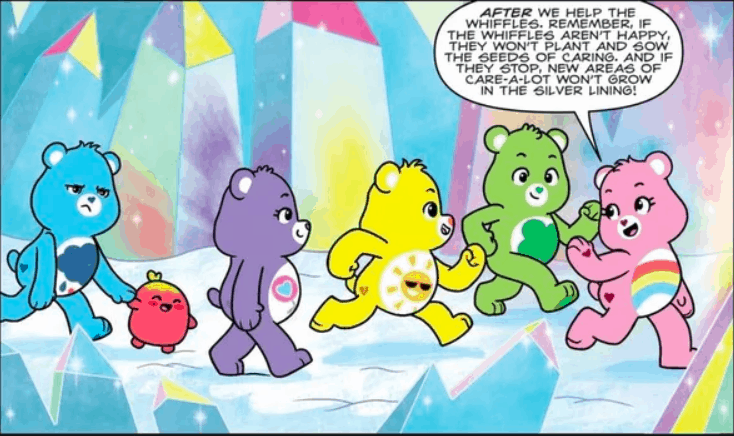I just got off a group call about determining value, and it basically ended up being a therapy session about my aversion for capitalism. Summed up, I care much more about creating a culture that lives up to my idealized vision of how things could be than I do about the messed up mainstream culture that is. The bubble in which I reside is a place of promise and potential, a playground in which I can test and tinker ideas I dream up, and bring them into reality. Changing the greater reality feels like a lesser cause because it is separate from my daily experience.
I consider where my responsibilities lie. With the kids in my classroom. The ones that chose me. These are the ones that trusted that I could offer them something different, something meaningful and applicable to their greater lives at large. These are the ones who teach me how to reach them, and how much to turn the dial. They are the ones I feel beholden to because they make me better at what I do.
When I have to walk through the neighboring gym, a wave of contempt washes over me. Here is everything wrong with PE. Kids wanting to and allowed to be invisible. A large game only about half are interested in/ engage with. Open gyms in which at least a third sit against the wall glued to their cell phones. They’re not even asked to dress down anymore.
How can I care about a culture that condones this? How can I value a leader who thinks so little of his craft? How can I value a student who is perfectly content with not being taught? My reaction is to dismiss what disgusts me. I do not wish to give it any more time or energy than the brief encounters where we happen to collide.
It is hard enough to make something new. Getting it right is more meaningful to me than getting it out to the masses. I don’t see the ones who might want it. I only see those unwilling to do the necessary work, both real and imagined.

People have every right to care about what they care about. It makes sense that teachers with 50-60 kids in a class fixate on classroom management. It makes sense that if a grade is a grade and you can get an ‘A’ by doing nothing, taking the easier route with no expectations is an alluring option. Who am I to want more for these people who seem perfectly content with the way things are?
In order to care a lot about some things, I have to not care about most things.
Care is a limited resource. It is also the most compelling. I have no intention of exploiting it as much as the marketplace has done. My part is to do the work and give the findings away. Making you look seems to cheapen my motives. You being able to find what I put out is almost seen as a test of your diligence.
Still, all of this thinking is subjective. If viewed objectively, the above statement in bold is exactly how capitalism works. They care about a few things and hone in on those at the expense of many. Most don’t start out wanting to conquer. It’s about commerce. They too believed in their idea and that it was the path to a better way. Still, peeling back one layer further, what action do you take when your desire is to simply nurture?
My answer has been to show up for those who show up. Because they are what I need to put my skills to use, I treasure every opportunity they give. I do not take their time and attention for granted (even though it’s forced). In capitalist terms, I’m so grateful for my ‘customer’ that I don’t dare solicit others. Somehow, they have to come organically and of their free, non-manipulated will to make the work matter most.
Jeremy Fein, an astute business man (who also has a heck of a heart), recently asked, ‘What about the kids who want different that can’t get to you? They don’t have the access. Is their fate locked to the tradition that fails so many because you aren’t willing to scale bigger?” It was a jarring question. I could only pragmatically answer it by thinking about training the teacher.
My greatest care remains for my students. Interestingly, I never saw my adult clients as students, simply as clients, but I’m sure they check all the same boxes. Teaching someone 1-on-1 is a vastly different experience, but no less special. On the contrary, because they have to go out of their way to get to me and sometimes pay me (my going rate is free – $60 a session, and I have yet to be paid $60 a session), in off hours and after long days of life work, I often find them even more special. Attention and appreciation is tied to rarity.
Can we expand our scope of care, without sacrificing the needs of the individual that made us love this work in the first place? I’m not sure it’s possible. I do think we can come to care for other things and other values and other ideals, but my current residence in the microcosm of, ‘Yes, thank you‘, is the perfect mix of risk and reward. I’m having such a good time, and I’m getting so very good at this. I think that’s all I’ve ever wanted all along.


2 Responses
Christine, I am so glad you shared this. I remember the debate from our workshop and this is a resolution I didn’t expect! It is perfect. It is true. And it is possible!
Well you know me. I still think the big picture is important. But what is the same? Think globally, act local.
This is a very inspiring testimony you have shared.
Saying, not same. Oops.